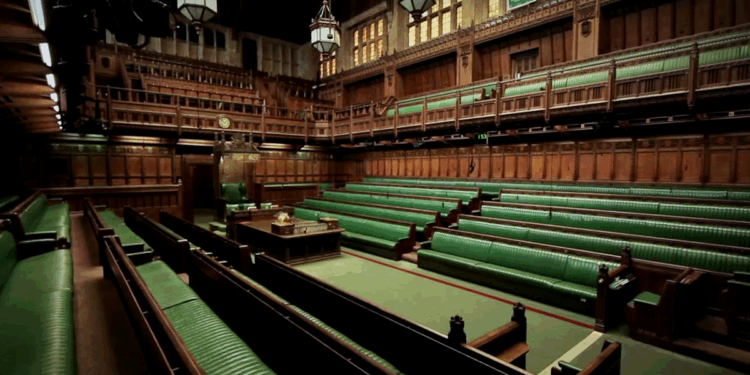We read in this morning’s Times that Labour is losing an increasingly worrisome number of voters to the Green Party, as “left-wing voters […] are disillusioned with the party’s shift to the right on welfare, migration and transgender rights.”
According to the paper, which has conducted new polling with YouGov, 15 per cent of past Labour voters would now back the Greens, more than double the share reporting that they have switched their support to Reform UK.
This has elicited a predictable response from unhappy Labour sources: “Senior Labour figures have accused Starmer of failing to grasp the seriousness of the threat and warned that the party risked losing the next election by abandoning its progressive values in order to chase votes on the right.”
Now the Green surge is likely not entirely down to the Government. The party also made the long-overdue decision to scrap its dual leadership structure; whatever Zack Polanski’s merits as leader, it is undoubtedly a boon to his media profile that he is the Green leader rather than one of them.
Which is not to say that he has not made some important decisions, perhaps the most significant of which (at least for us here at ConservativeHome) has been his decisively embracing his party’s left-wing, urban identity over its more ambiguous, and often small-c conservative, rural one.
This has probably been the one bit of good strategic news the Conservatives have had in the past year: as Peter Franklin previously wrote, the Green Party could well have evolved (and might yet, who knows) into a serious danger to the Tories in many of their former heartlands. Like the Liberal Democrats, it enjoys the small party’s prerogative of being able to present as different things to different voters, and in local government could offer a safe haven for comfy, middle-class people who don’t want anything built.
In a broader sense, however, the Green surge is probably a very bad indicator for the sensible operation of democratic government.
This might seem counter-intuitive. After all, have not many people styling themselves ‘pro-democracy’ campaigners long complained about our electoral system, and the two-and-change party system it supports? Does the rise of the Greens, and indeed Reform, not represent a great democratic flourishing? Should those of us of a broadly free-market disposition not welcome the fact that voters now have greater range in their choice of representatives?
Perhaps. But there is a case to be made that democracy is not about making choices, but decisions, and the two-party system was much better oriented towards presenting voters with the latter than a multiparty system more replete with the former.
Think of it this way: a choice is something a consumer makes, and it represents an individual preference – on what cereal they most enjoy, where they want to go on holiday, and so on. Viewed this way, a choice has for our purposes two distinctive features. First, it is largely an individual affair; with the possible exceptions of ones children, spouse, or housemates, nobody else is forced to consume what the chooser chooses. Second, it is normally transient; consumer choice is exercised over and over again, and one can switch brands or products easily if one’s tastes or circumstances change.
All of which is quite different to a democratic decision, which is both imposed on a lot of people who disagreed with it and is normally, if not entirely irrevocable, ideally at least enduring (few people think it good for a country to yo-yo rapidly between conflicting national policies, even if it must be endured for the sake of democratic government).
The two-party system has many flaws, but it is at least better at both forcing politicians to offer the voters the chance to make actual decisions (by coralling them into long-standing coalitions which have to present their programmes for government before an election) and forcing voters to make them (by restricting choice to parties which could actually form a government and carry out their promises).
We are not necessarily living through the death of the two-party system in Britain, a view which tends to be based on measuring modern trends from that systems high-point in the 1950s. It has been through long periods of fragmentation before, such as that which attended the collapse of the Liberals as a party of government, and may well recover from this one.
But either way, and whatever the upsides, the downsides of the current the surfeit of options available to the electorate seem fairly clear. Historically, we might have expected a period of sustained failure by both major parties to prompt some serious soul-searching inside one or both, and to create political space for a major challenge to the status quo – this is what happened in the 1970s, for example, when the Conservatives selected Margaret Thatcher as leader and broke with the post-war consensus on unemployment.
Superficially, the rise of the Greens and especially Reform (currently leading the polls and on-track, if those numbers held at the next election, to form a government) looks like such a challenge. But whilst both are feeding off voter anger at the real and numerous failures of both Labour and the Tories, neither yet represents a remotely challenging policy diagnosis. Polanski’s offer is that the country could be fixed by squeezing billionaires even harder, whilst Nigel Farage seriously downplays the difficulty of delivering the immigration settlement he wants (and Reform’s numbers don’t add up either).
As such, it looks as if we might be in for a period in which an unhappy electorate smashes one party after another against the brutal facts of Britain’s fiscal position; with every party having a plausible rival on its side of the field, all of them are locked into a prisoner’s dilemma with the voters primed to punish defectors – and as long as another plausible-looking party is touting easy answers, the voters have no reason to think otherwise.
Of course, Labour and the Conservatives have only themselves to blame for this state of affairs. Contra the myth of the ‘lurch to the right’, the real indictment against the Tories since 2010 is that they failed to do the job of a major party in a two-party system, which is tack sufficiently towards public opinion as to avoid leaving enough space on their outward flank for another party to break through. Labour, meanwhile, is suffering the karma of the 2017 election, when its very effective opposition to the ‘Dementia Tax’ established that even a 25-point poll lead could be unpicked by one unpopular policy, leading Sir Keir Starmer to fight the 2024 election without any.
But if we ever want to get round to the often unpleasant business of making serious collective decisions, we do probably need the two-party system to reassert itself at some point – even if one or both of the players is new.








![Florida Officer Shot Twice in the Face During Service Call; Suspect Killed [WATCH]](https://www.right2024.com/wp-content/uploads/2025/12/Inmate-Escapes-Atlanta-Hospital-After-Suicide-Attempt-Steals-SUV-Handgun-350x250.jpg)








